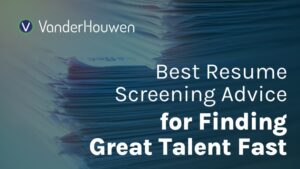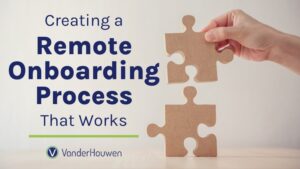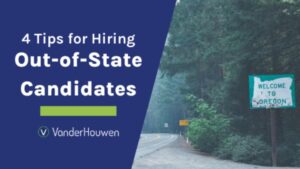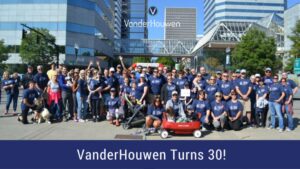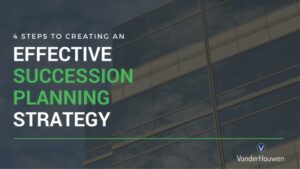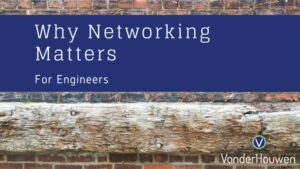What Questions Should You Ask During a Technical Interview?
Hiring in today’s market is more complex and nuanced than ever before—especially when it comes to technical jobs in fields like software development, infrastructure, business intelligence, and data engineering.
Not that long ago, it was sufficient for hiring managers, recruiters, and human resources departments to simply seek a developer with experience in C#, SQL and Visual Studio.
However, now hiring teams must be very particular about what specific subsets of development experience they need to fill a role in their company. Are you strong with JavaScript on the front-end? Which JS libraries are you most familiar with? Can you create APIs? Do you have experience with responsive websites? Context is everything—there are many factors to consider outside of asking “what programming language do you know?”
With so many complexities in the tech landscape, how can you ensure you’re targeting and hiring the right candidates? What questions should you ask during a technical interview and what responses should you be listening for? Start by understanding your team’s needs and ask these four types of interview questions to get an understanding of a candidate’s experience, approach to work, and how they might contribute to your organization.
However, now hiring teams must be very particular about what specific subsets of development experience they need to fill a role in their company. Are you strong with JavaScript on the front-end? Which JS libraries are you most familiar with? Can you create APIs? Do you have experience with responsive websites? Context is everything—there are many factors to consider outside of asking “what programming language do you know?”
With so many complexities in the tech landscape, how can you ensure you’re targeting and hiring the right candidates? What questions should you ask during a technical interview and what responses should you be listening for? Start by understanding your team’s needs and ask these four types of interview questions to get an understanding of a candidate’s experience, approach to work, and how they might contribute to your organization.
Identify the technical requirements of the role
An essential first step toward asking the right questions and hiring the right candidate is to have a good understanding of the position you need to fill. Start by identifying the technical knowledge gap the team currently has. By understanding your team’s ‘technical debt,’ you’ll be in a better position to identify what you and your team truly need to make a successful hire. Before looking at a resume for a potential new hire, ask yourself these three questions:- What are we building and what is currently holding us back from being able to complete this application/product/platform for our stakeholders or customers.
- From a team makeup and technical perspective, where are we strongest?
- Where are we weakest and what knowledge gaps do we have?
- What are the main components of Object Oriented Programming?
- What is encapsulation?
- What is Polymorphism?
- What is inheritance?
- What is abstraction?
- Why they prefer using an Object Relational Model to direct SQL in working with a database?
- What are the advantages and disadvantages of static vs. dynamic typing?
- What are the benefits of working within a continuous deployment model versus a traditional scheduled delivery model?
- What is your opinion on test-driven development?
- What are your thoughts on Agile development versus a waterfall model?
- In what cases can automated testing be useful? Where can it be determinantal to the quality of an application or platform?
- Do you make any contributions to public projects on Stack Overflow, GitHub, or other online tech communities?
- Do you have any associations with local networking tech groups like PJUG, PADNUG, PMI, or SQUAG?
- How do you continue to improve on your own time? Are there any technologies or platforms you’re interested in but haven’t had a chance to work with
Understanding exactly what your team needs will allow you to determine what attributes are required to fit the job. Before even getting too deep into technical questions, it’s crucial to assess the candidates’ prior experience and work history. Don’t just look at job titles and big company names on their resume—take the time to understand their focus and team environment to determine if they will be a good fit for your team.
Foundational Interview Questions
For the most part, good developers can be language and platform agnostic. While they may not be able to answer the specific python computation or SQL injection questions, they should be able to explain high-level fundamentals and approaches. Ask them to explain in simple terms the Object Oriented fundamentals or to describe how they use a conceptual approach. Their responses should be easy to understand, regardless of the specific coding/tech language, which will allow you to assess their ability to learn, adapt, and grow. Remember that technology is never static. While a candidate may not have experience in your specific environment, their awareness of key concepts will allow them to assimilate to your company much more quickly than someone who’s only tactically familiar with a certain programming language.EXAMPLE QUESTIONS:
Comparison Interview Questions
Asking questions that focus on comparing mutually exclusive or opposing technical methodologies can reveal a lot about a potential candidate. Ask your candidate to talk through two common, job-specific methodologies to get a better understanding of their knowledge with the tech-specific work as well as get a glimpse into the way they think. Answers to these types of questions allow the interviewer to listen to the candidate’s thought process when it comes to their work and see their approach to problem-solving in the workplace.EXAMPLE QUESTIONS:
Discussion Interview Questions
Ask your potential new hire unary discussion questions specific to your company’s practices and methodologies. These kinds of opinion-based thought-starter questions can be an excellent way to assess a candidate’s approach to their work and how well they’ll fit in with your team. If a candidate doesn’t fundamentally agree with your practices, it’s an early indicator that they likely won’t be a good team fit, regardless of their technical prowess.EXAMPLE QUESTIONS:
Exploratory Interview Questions
Personal exploratory questions, especially regarding self-improvement, can uncover a lot of insight about a candidate’s ability to learn and grow. Questions like this allow you to dig deeper and explore beyond a candidate’s seemingly solid work history. Even a highly-experienced job seeker who has a strong list of past workplaces may not be up-to-date on the latest and greatest if their most recent experience is in a “legacy” environment. Keep your eyes out for the candidates that continue to push themselves to learn new design patterns, frameworks, and languages—often these traits really demonstrate their ability to assimilate to a new environment.EXAMPLE QUESTIONS:
Partner with a recruiting company to do the heavy lifting
Working with an agency like VanderHouwen gives your hiring team an extra boost. A good recruiter is an extension of your organization—they are your experts at vetting new candidates, making sense of detailed resumes, and finding the perfect fit for your company culture. As your brand spokesperson, they can give job seekers clarity on your organization’s day-to-day environment and working style, while getting to know a candidate deeply to understand if they have the attributes you are looking for, even before the first phone call.There is no one question that rules them all—hiring teams should tailor their questions based on the need they are trying to meet in the company. Just like building a house with the wrong tools, often times bad hires are due to the hiring team’s failure to understand the goal and to articulate that need to the appropriate candidate. You can fasten boards together with screws or nails but using a hammer on screws or a screwdriver on nails doesn’t work.
Before setting up the technical interview, make sure you’re getting the right candidates in the door. Don’t let an outdated hiring process driving away potential hires.




































